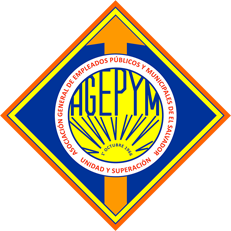In the rapidly evolving landscape of virtual gaming, selecting a trustworthy platform requires a keen eye for essential indicators such as licensing, casino security, and responsible gaming practices. Players must navigate these elements to ensure a safe environment for their betting activities, where integrity and protection are prioritized.
One of the hallmarks of a reputable gambling site is its commitment to fraud prevention. This includes measures that safeguard user data and transactions against nefarious actors. Moreover, robust platforms employ SSL encryption technology to secure sensitive information, making it imperative for players to verify these features before engaging in gaming.
By focusing on criteria that emphasize safe betting experiences, enthusiasts can make informed decisions about where to place their wagers. Comprehensive research into these safety protocols will not only enhance enjoyment but also foster a responsible gaming atmosphere.
Evaluating the Licensing and Regulation of Online Casinos
When considering an internet gaming platform, it is crucial to assess its licensing and regulatory status. Reputable establishments are usually licensed by recognized authorities, which ensures compliance with strict guidelines aimed at protecting players and fostering responsible gaming. This regulatory oversight helps prevent fraudulent activities and upholds high standards of casino security.
Licensing bodies, such as the UK Gambling Commission or the Malta Gaming Authority, enforce rules that operators must follow to maintain their licenses. These rules often include measures for fraud prevention, responsible gaming practices, and ensuring fair play. Furthermore, the presence of certification from respected organizations serves as an additional layer of assurance for users seeking safe betting experiences.
It is also essential to verify whether the site employs SSL encryption to protect the personal and financial information of its users. Secure connections are a hallmark of trustworthy platforms, ensuring that data transmitted between the player’s device and the casino remains confidential and free from interception.
In summary, a well-regulated gaming site is indicative of a commitment to player safety and integrity. Always review the licensing information and regulatory affiliations to gauge the legitimacy of a gaming platform before participation.
Assessing Game Fairness and Randomness in Gambling Platforms
In the realm of digital gambling, ensuring integrity in game outcomes is paramount. Primary indicators of this integrity are the algorithms that govern gameplay, which should be designed to guarantee randomness. Many reputable platforms utilize Random Number Generators (RNGs) that undergo regular audits by independent organizations. This process ensures that games are not only fair but also unpredictable, offering an equal chance to all players.
Furthermore, the implementation of SSL encryption serves a dual purpose in this context. It secures the transmission of data between players and the platform, which helps to prevent fraud and maintain player anonymity. By safeguarding personal information, casinos enhance their overall casino security, allowing users to engage in safe betting without fear of data breaches.
Another crucial aspect involves verifying the licensing status of gambling sites. Regulated platforms must adhere to strict guidelines that encompass measures for fraud prevention and promote responsible gaming. Authorities that issue licenses often require an ongoing commitment to game fairness and player protection, fostering a trustworthy environment.
In conclusion, assessing the fairness and randomness of games is essential for players seeking a reliable experience. Operators committed to these principles can be found at casinor2pbet.com, where the emphasis on transparency and safety ensures an enjoyable gaming atmosphere.
Examining Payment Options and Player Protection Measures
When considering a platform for safe betting, one of the primary aspects to examine is the variety of payment methods available. Reputable sites typically offer a range of secure banking options, including credit and debit cards, e-wallets, and cryptocurrencies. Each of these methods should exhibit robust encryption measures, particularly SSL encryption, to safeguard sensitive financial transactions. This technology ensures that personal and banking information is transmitted securely, minimizing the risk of data breaches.
In addition to secure payment methods, effective player protection measures are paramount in fostering a trustworthy gambling environment. Well-regulated platforms adhere to stringent licensing requirements, which often include provisions for responsible gaming. This may encompass features such as deposit limits, self-exclusion options, and access to gambling addiction resources. The presence of these tools indicates a commitment to promoting safe gaming practices and protecting players from harmful behaviors.
Equally important is the implementation of fraud prevention techniques. Reliable platforms utilize various mechanisms, including identity verification processes and transaction monitoring systems, to detect and prevent fraudulent activities. This not only enhances casino security but also instills confidence in players that their funds and personal information are adequately protected.
Ultimately, a thorough evaluation of available payment options combined with comprehensive player protection measures is essential for ensuring a safe and enjoyable gambling experience. By focusing on these criteria, players can make more informed choices and engage with platforms that prioritize their safety and well-being.

